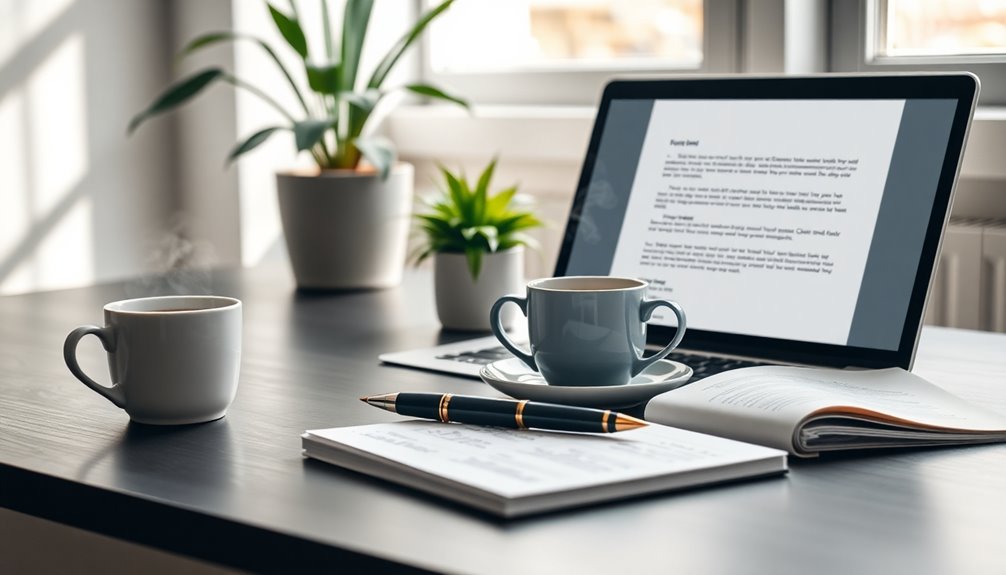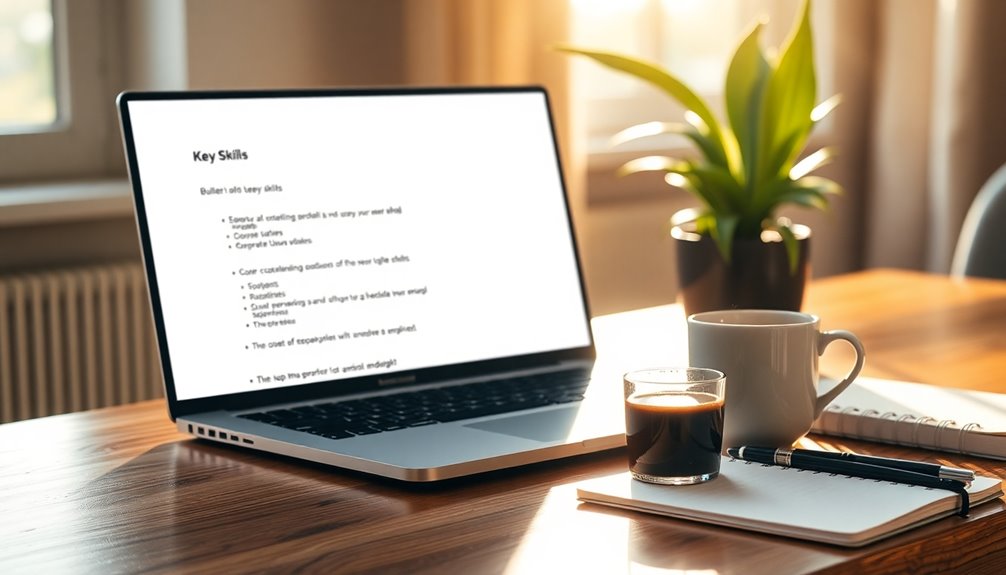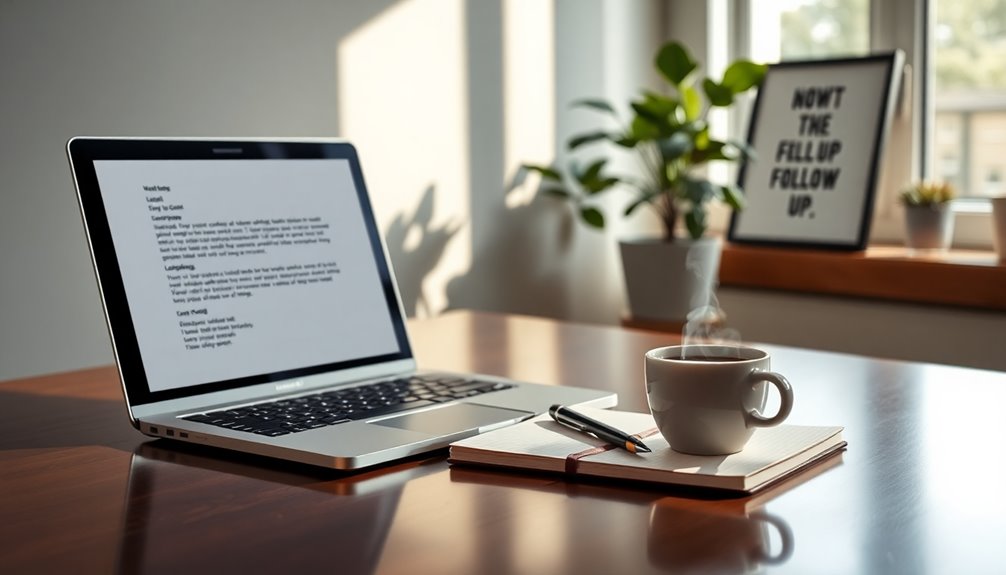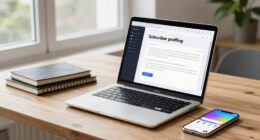To write an effective email asking for a letter of recommendation, start by clearly stating the purpose and details of the opportunity. Use a respectful tone and personalize your message by referencing shared experiences with the recommender. Attach your updated resume and mention a submission deadline, giving them ample time to respond. Approach them well in advance—ideally 6-8 weeks before the due date. Always express gratitude and follow up politely if necessary. A well-crafted email not only increases your chances of getting a strong letter but also strengthens your professional relationships, and there's more to explore on this topic!
Key Takeaways
- Clearly state the purpose of your email, including details about the opportunity and why you need the recommendation.
- Personalize the request by referencing shared experiences and highlighting specific achievements relevant to the opportunity.
- Attach supporting documents, like your resume, to provide the recommender with context and information about your qualifications.
- Approach the recommender 6-8 weeks in advance and specify a submission deadline to ensure ample time for writing.
- Express genuine gratitude with a thank-you note after receiving the recommendation, and provide updates on your application outcome.
Introduction
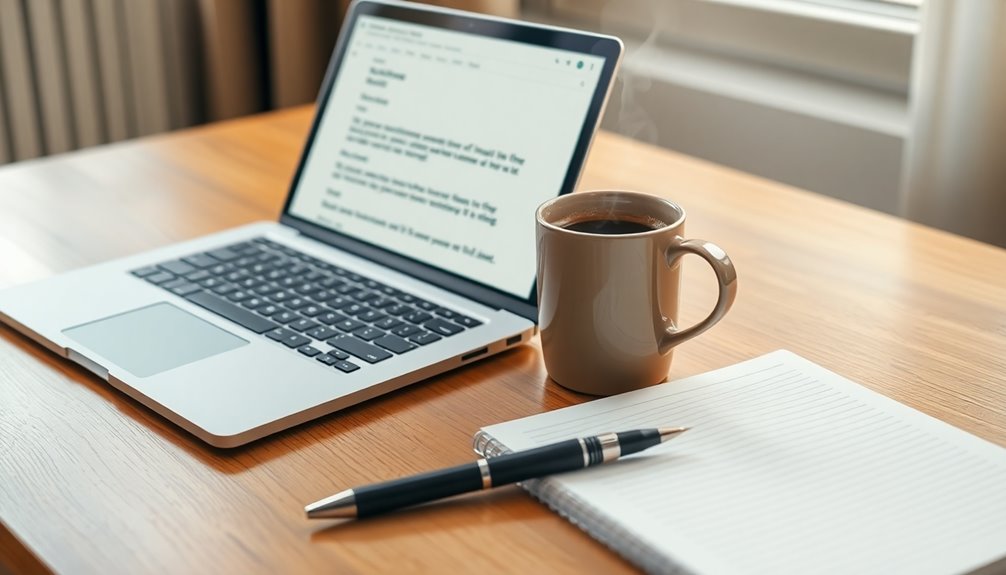
Writing an email to request a letter of recommendation can feel daunting, but it doesn't have to be. When you approach this task thoughtfully, you can create a positive impression on your recommender.
Start by clearly stating the purpose of your email. Mention the specific opportunity you're pursuing, like a graduate program or job, and include relevant details about the position. This context helps your recommender understand why they're being asked to write a strong letter.
Personalizing your email is essential. Remind them of shared experiences or projects you've worked on together; this can strengthen your relationship and provide context for the letter.
Be sure to include a deadline for when the letter is due, giving them enough time to craft a comprehensive recommendation.
Attach your updated resume and any additional information that could assist them in writing a more informed letter.
Finally, express your gratitude for their willingness to help. A simple "I'd be so grateful for your support" can go a long way.
Builds Professional Credibility
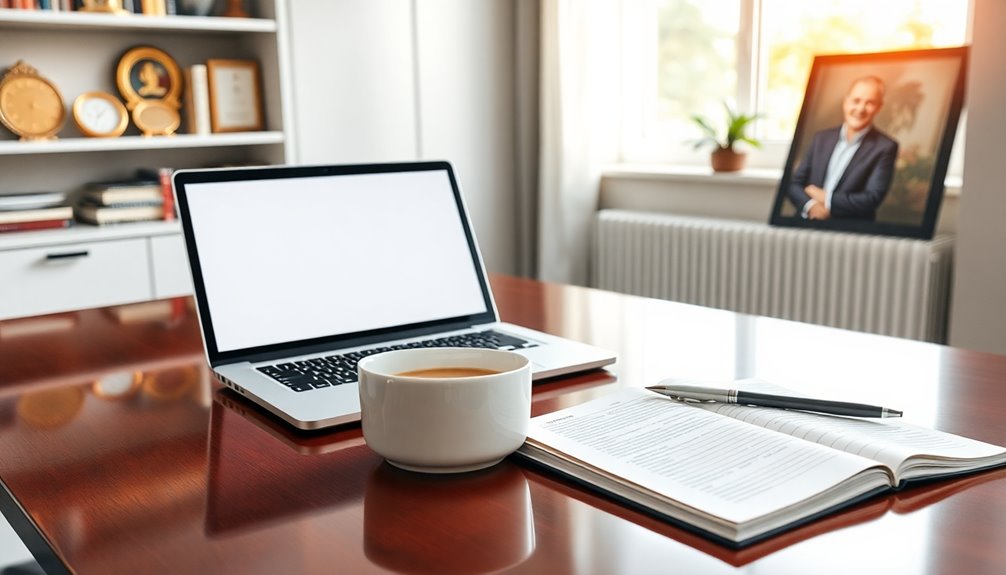
A well-crafted email requesting a letter of recommendation not only facilitates the process but also builds your professional credibility. When you make your request, be sure to clearly articulate the purpose of the letter and provide context or information about the opportunity. This demonstrates your seriousness and respect for the recommender's time, enhancing your professional image.
Including specific details about your achievements and the qualities you'd like highlighted can help your recommender write a strong letter of recommendation. This not only makes their job easier but also reflects positively on you. Remember, a well-drafted email shows you've put thought into your request. Additionally, consider incorporating storytelling techniques to enhance your message, as they can make your request more engaging and impactful.
It's also essential to send a thank you note after receiving the recommendation. This simple gesture reinforces your appreciation and maintains a positive relationship, which is invaluable for future interactions.
If you haven't heard back, it's perfectly acceptable to send a follow-up email. Doing this early to give your recommender enough time to respond shows professionalism and accountability, reinforcing your credibility.
Personalize Your Request

Personalizing your request for a letter of recommendation can significantly boost your chances of receiving a compelling endorsement. Start your email by referencing specific experiences or projects you shared with the recommender. This not only reminds them of your collaborative history but also sets a positive tone for your request.
Clearly articulate why you chose this particular person to recommend you. Highlight their expertise and how it aligns with the opportunity you're applying for. This demonstrates your thoughtful consideration of their role in your application.
It's also helpful to mention the specific skills and qualifications you'd like them to emphasize in the letter. This guidance can lead to a more personalized and impactful recommendation.
Throughout your email, maintain a warm tone and express genuine gratitude for their support. Acknowledge that you appreciate their time and effort, making it clear that their input is invaluable to your application process. Throughout your email, maintain a warm tone and express genuine gratitude for their support. Acknowledge that you appreciate their time and effort, making it clear that their input is invaluable to your application process. Let them know that their feedback has greatly improved your confidence in writing job application emails, as their advice has helped you refine your approach. Additionally, assure them that their guidance will have a lasting impact on how you present yourself to prospective employers.
Step-by-Step Guide to Email Requests
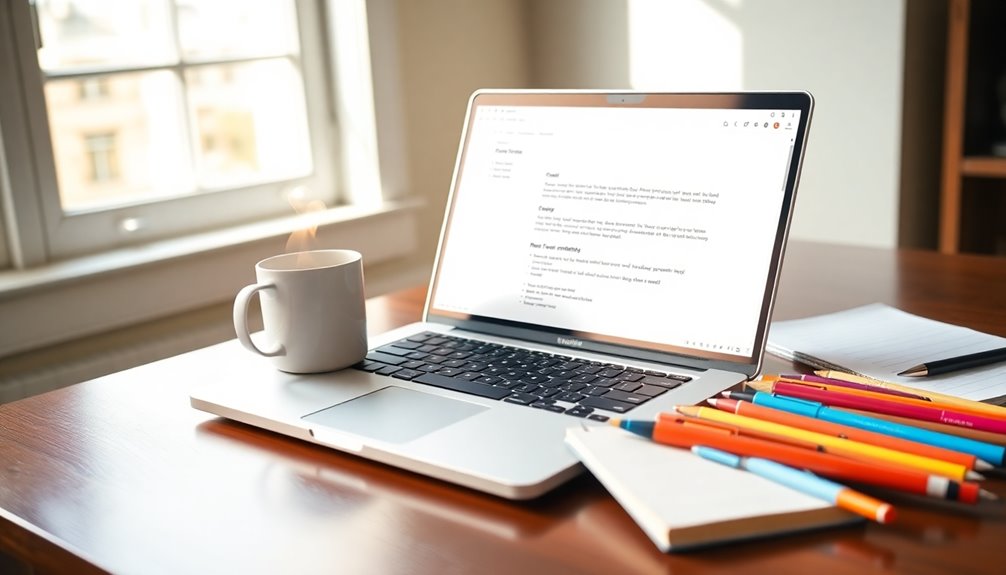
Crafting an effective email request for a letter of recommendation involves a clear structure that guides your recommender through your needs. Start by stating the purpose of your request. Mention the specific opportunity or program, along with the submission deadline, to provide context.
Next, personalize your email. Remind the recommender of shared experiences, projects, or achievements that showcase your skills and qualities. This helps them tailor a strong recommendation.
Attach your updated resume and any relevant documents, such as a cover letter or a "brag sheet." These materials give your recommender the necessary information to reference while writing the letter.
Once you've sent your request, plan to follow up politely 1-2 weeks before the submission deadline. This ensures they've ample time to complete your letter, while also expressing gratitude for their support.
Dos and Don'ts for Recommendation Emails
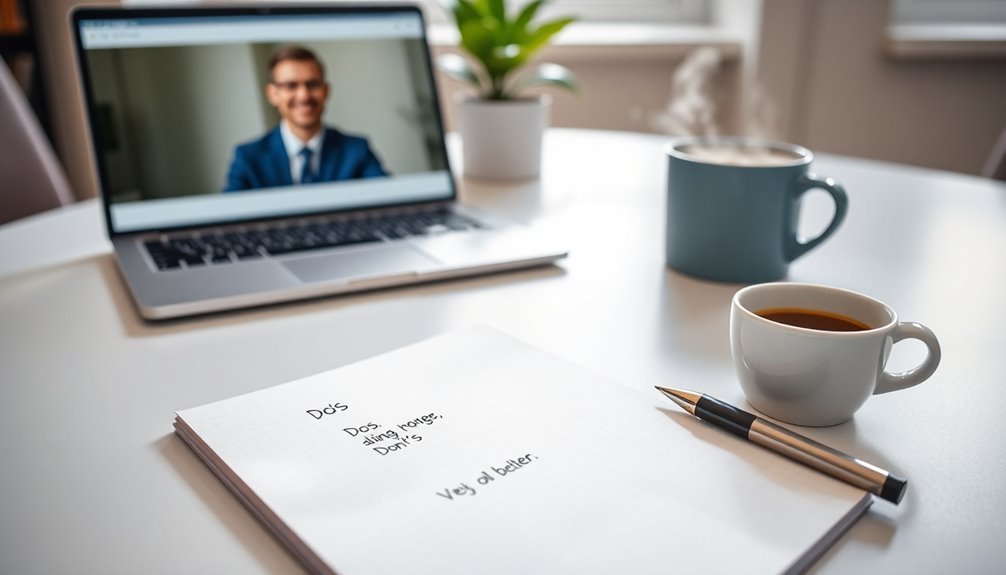
When reaching out for a letter of recommendation, keeping a few key dos and don'ts in mind can enhance your chances of receiving a strong endorsement.
First, do personalize your request by recalling specific experiences you shared with the recommender. This makes it easier for them to write a compelling letter that highlights your skills.
Don't rush your request; aim to ask at least 6 to 8 weeks before the deadline, giving them ample time to reflect and write thoughtfully.
Do provide context and details about the opportunity, including due dates and submission methods. This helps the recommender understand the importance and purpose of the letter.
Don't overlook follow-up etiquette; send a polite reminder 1-2 weeks before the deadline to keep your request fresh in their mind.
Examples of Recommendation Request Emails
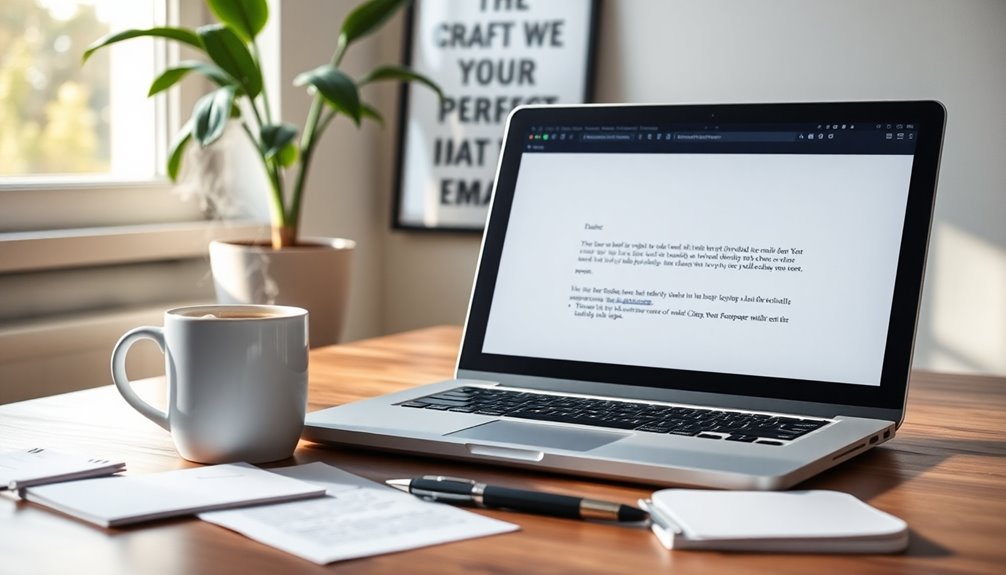
Requesting a letter of recommendation can feel daunting, but having a well-structured email can make the process smoother. Start with a clear subject line, like "Request for Letter of Recommendation," so your recipient knows the email's purpose immediately.
Begin your email by thanking them for their past support and briefly reminding them of your shared experiences or accomplishments. For example, you could say, "I really appreciated your guidance during my internship last summer."
Then, clearly state your request. Mention the specific opportunity you're pursuing, whether it's a job, graduate program, or scholarship, and include relevant deadlines.
Don't forget to attach your resume and any other supporting documents, like a brag sheet or transcript, to give context. This helps them write a personalized letter that highlights your strengths.
Pro Tips for Writing Effective Emails
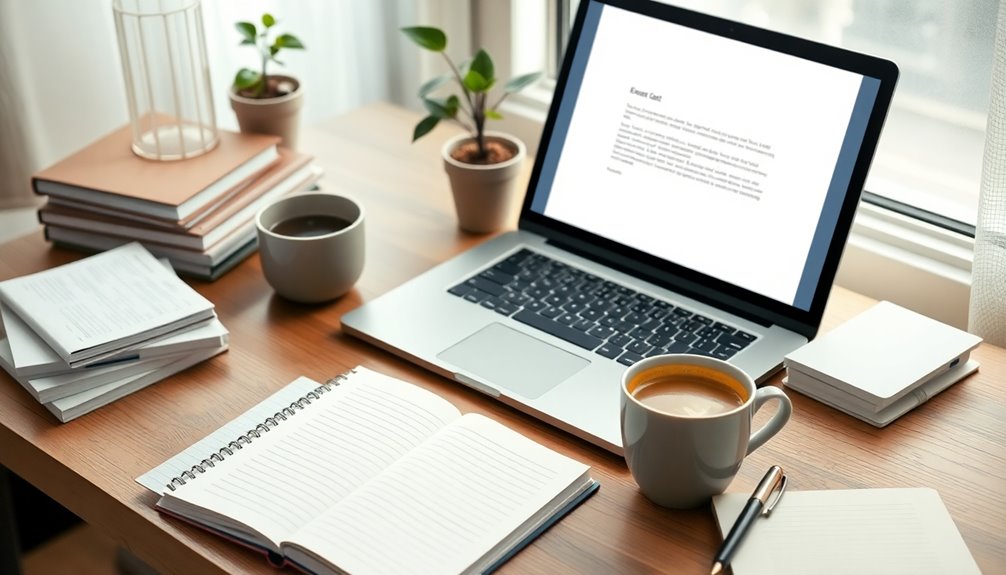
Effective email communication is essential for securing a strong letter of recommendation. When you're asking for a recommendation, start with a clear and concise email subject line that indicates your request. For example, "Request for Letter of Recommendation" sets a professional tone from the get-go.
Make sure to state the specific opportunity or program you're applying for, along with relevant deadlines. This helps the recommender manage their time effectively.
Personalize your email by reminiscing about shared experiences or projects, which can jog their memory about your strengths and achievements.
Attach supporting materials, like your resume and a "brag sheet" that details your accomplishments. This context makes it easier for them to write a strong letter.
As you approach the submission date, don't hesitate to follow up with a polite reminder 1-2 weeks prior. It's a good opportunity to thank them for their assistance and offer any additional information they might need.
Final Thoughts
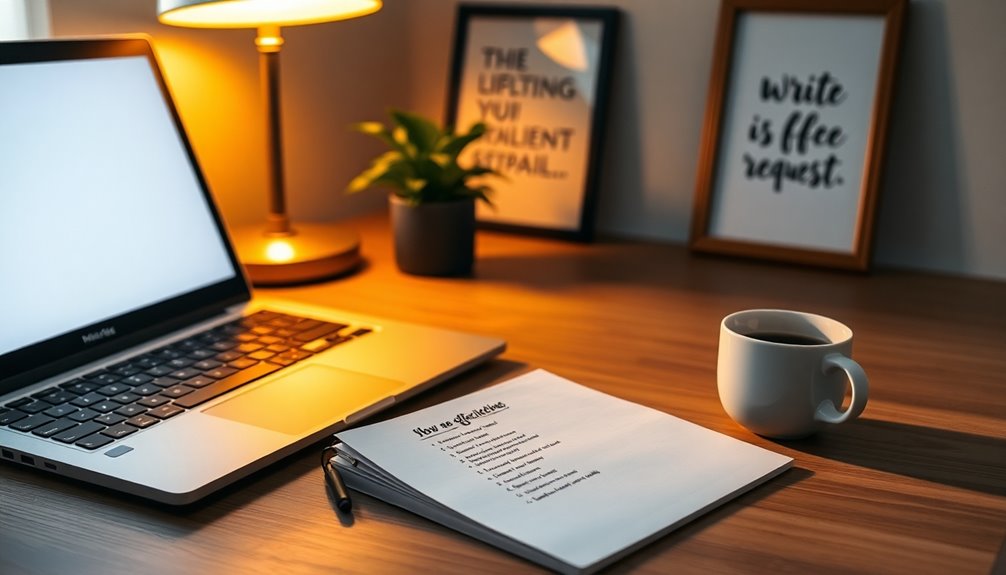
Securing a strong letter of recommendation can make a significant difference in your application process. To boost your chances of receiving a positive response, craft a clear and concise email that outlines your request. When you email a formal written request, include specific details about the opportunity, such as the job title or program. This personalization shows thoughtfulness and helps the recommender understand your goals.
Consider attaching supporting materials like your resume or a "brag sheet." These documents provide context and highlight your achievements, making it easier for the recommender to feel comfortable writing a strong letter.
Don't forget to give your recommender ample time to write the letter; this consideration will likely result in a better endorsement.
After sending your request, follow up politely if you haven't heard back, serving as a gentle reminder. Once you receive the letter of recommendation, express gratitude through a thank-you note. This simple act helps maintain a positive relationship, which can be invaluable for future requests and professional networking.
Frequently Asked Questions
How to Write a Letter Requesting for a Recommendation Letter?
When you write a letter requesting a recommendation, start with a polite and clear subject line.
Recall your shared experiences to remind the person of your strengths. Clearly state why you need the recommendation and include details about the opportunity and deadlines.
Attach your updated resume to give them context.
Lastly, don't forget to follow up with a gentle reminder a week or two before the deadline to ensure everything's on track.
How Do You Write a Professional Recommendation Email?
To write a professional recommendation email, start with a formal greeting and clearly state your purpose.
Keep your tone concise and respectful, avoiding any grammatical errors. Be sure to include deadlines for submission and methods for sending the letter.
Attach your resume and any relevant documents to assist the recommender.
How to Write an Email to Principal Asking for Recommendation Letter?
When you write an email to your principal asking for a recommendation letter, start with a polite greeting and introduce yourself.
Clearly state your relationship and the purpose of your request. Mention the opportunity, like a college application, and provide any deadlines.
Attach your resume and highlight specific qualities you'd like them to emphasize.
How to Ask for a Letter of Recommendation From a Current Employer?
When you're ready to ask for a letter of recommendation from your current employer, start by selecting a manager who knows your work well.
Approach them at least 6-8 weeks before the deadline, and be clear about what you need. Explain the opportunity and share specific achievements you want highlighted.
Don't forget to attach your resume. A polite follow-up a week before the due date shows your appreciation and keeps the request on their radar.
